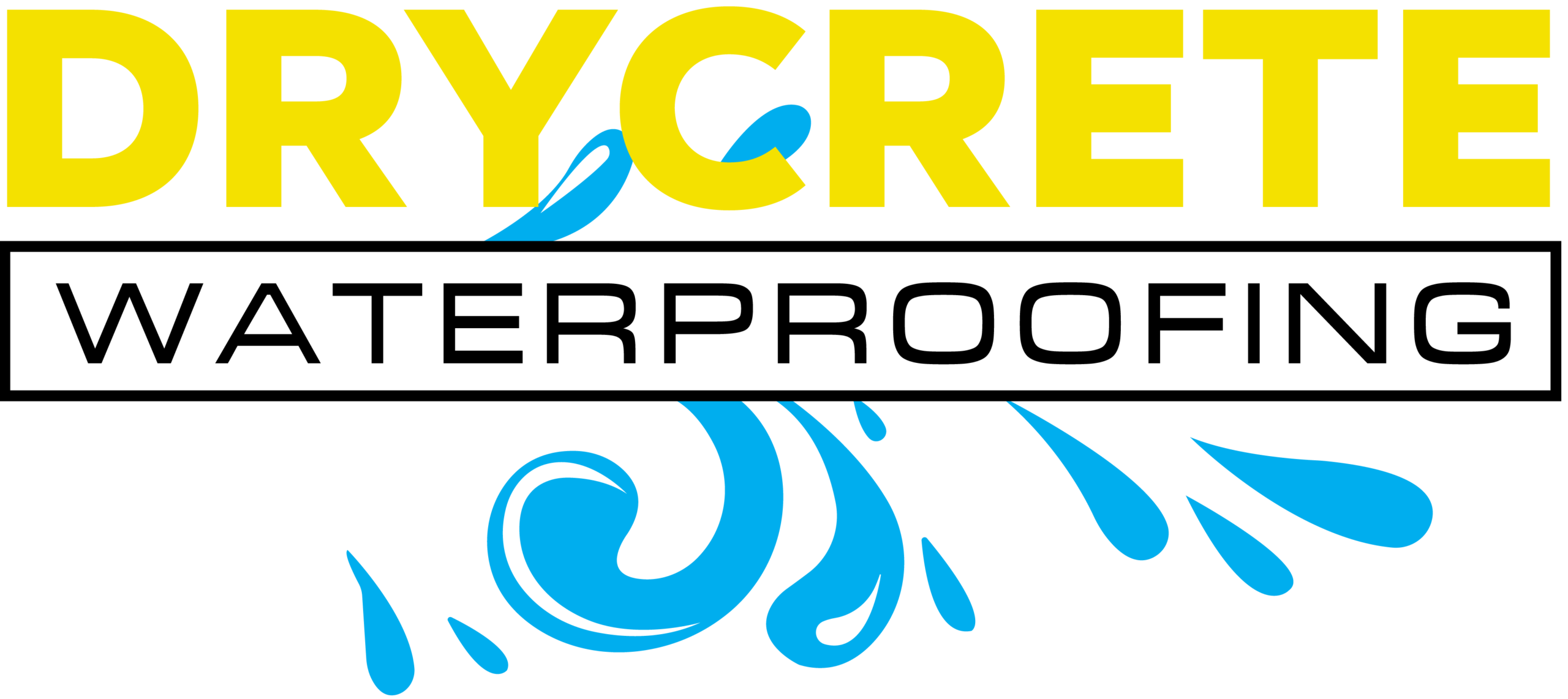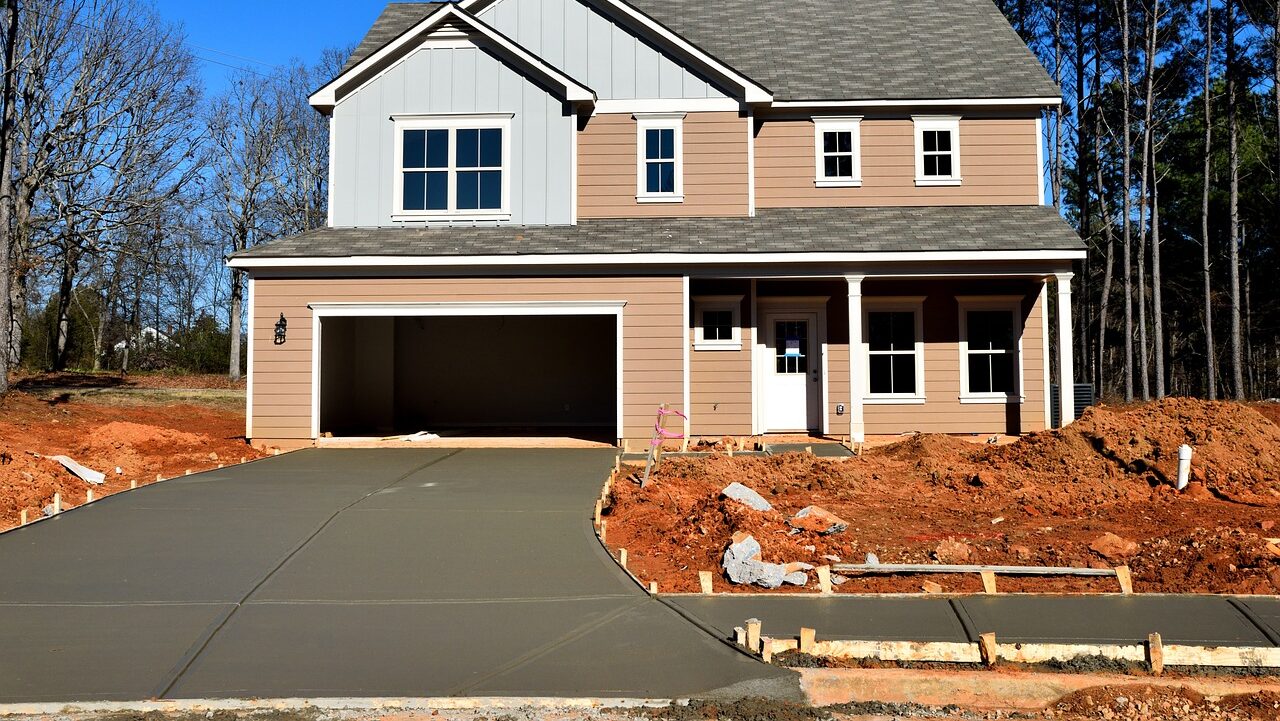Picking the right surface for your driveway is an often overlooked detail when building or refreshing your home. There are a few options to consider but the two most common types are asphalt and concrete. In the great asphalt vs concrete driveway debate each has its own set of pros and cons to weigh out.
Before we get into the nitty-gritty of comparing asphalt vs concrete driveways, what do they have in common? Both consist of an aggregate of sand and stones, sit upon a bed of gravel. They both serve the same purpose: providing a solid surface with good traction for driving and parking on. Where they differ is in the specifics.
Overview of Asphalt Driveways
Asphalt driveways use a tarlike petroleum product to bind together sand and stones. This mixture is softened by heating it up, allowing it to conform to the contours of your driveway.
Asphalt has a few advantages over concrete as a driveway surface:
- Cost Effective: Asphalt is generally cheaper to install than concrete is.
- Quick Installation: Going from bare-earth to finished driveway is relatively quick, cutting labor costs.
- Ideal For Colder Environments: Asphalt isn’t particularly susceptible to damage from cold weather.
- Easy Maintenance: Asphalt is generally fairly simple to repair and patch.
Of course, there are a list of cons to go with those pros:
- Shorter Lifespan: When comparing asphalt vs concrete driveways, the softer nature of the former means it doesn’t last as long.
- Higher Maintenance Requirements: Though each individual maintenance task is easier than with concrete, they’re much more frequent.
- Susceptibility To Heat Damage: While resistant to the cold, the same can’t be said for heat. In very hot environments, the petroleum products which bind your driveway together can soften.
Overview of Concrete Driveways
Concrete driveways use a cement mixture to create your driving surface. Cement is mixed with sand, water and stones and then poured out to form your driveway. The result is hard-wearing and offers great traction.
Concrete offers a few advantages over asphalt when creating a new driveway:
- Durability and Longevity: Once fully set, concrete can last for decades with little intervention. This means it’s also the ecologically friendly choice for a driveway surface.
- Low Maintenance Requirements: Thanks to its durability, concrete driveways don’t require a lot of maintenance in comparison to the softer asphalt.
- Aesthetic Versatility: While asphalt’s versatility might be improving, concrete still has the edge. Changing up the mixture used to pour your surface can yield startlingly different results in terms of color. Concrete can also be stamped to provide a 3d pattern or design, should you wish.
Naturally, any list of pros has an attendant list of cons. Here are some downsides of concrete driveways:
- Higher Installation Costs: There’s no getting away from it; concrete costs more than asphalt during installation.
- Longer Installation Process: Part of the increased up-front costs of concrete driveways comes from the fact that they take longer to pour. More man-hours = more costs, not to mention that you can’t drive up to your home during the process.
- Susceptibility to Cracking: When comparing asphalt vs concrete, concrete does unfortunately crack more often. Being a more rigid surface means that where asphalt can bend, concrete can’t.
- Cold Weather Damage: Related to concrete’s susceptibility to cracking is its relative weakness to cold weather. Cycles of freeze and thaw can turn small cracks into structural problems if left unattended.
Head To Head Comparison: Asphalt Vs Concrete Driveways
Now that we’ve got a grip on the foibles of each surfacing type, how do they compare to each other? Let’s break them down into some key considerations that anyone planning a driveway refresh should think about:
Cost Over Time
While concrete may cost a bit more to install in the first place, asphalt requires much more frequent maintenance.
Similarly, while concrete repairs can often be a little on the pricey side, they’re relatively rarely needed. Asphalt will require much more regular repair, thanks to being softer, adding up over the lifespan of the driveway.
Overall, while the initial outlay might be higher, concrete is usually the more economic option in the long-term.
Durability and Lifespan
With the exception of particularly cold climates, concrete driveways have the edge here.
An asphalt driveway, properly maintained, should last around 30 years. During this time, it will require resealing every three to five years and occasional resurfacing. The soft nature of asphalt driveways means that heavier vehicles or constant usage will reduce these times considerably too.
A concrete surface however, unless badly damaged by the cold, should last upwards of 50 years, with only occasional washing.
When it comes to being hard-wearing and long-lasting, concrete has the edge in almost all cases.
Maintenance Requirements and Costs
As we’ve touched on above, asphalt requires regular maintenance. These tasks are generally fairly straightforward and relatively inexpensive, but they are regular. Over the 30-ish years you’ll have it, the costs add up considerably.
Concrete driveways on the other hand, require little maintenance under normal circumstances. Unless you live in an area with harsh winters, a wash every few years may well be enough. Unfortunately, cracks do tend to deteriorate and when they do they can be pricy to fix. This is especially true if you have tinted or patterned your driveway, as matching what’s there can be tricky.
Overall, concrete usually comes out on top for this comparison, but under poor conditions, sometimes asphalt has the edge.
Aesthetics and Curb-appeal
A certain amount of this one is down to your own personal tastes but in general:
It’s often said that asphalt doesn’t offer much in the way of customizability when compared to concrete, but that’s not entirely true. New techniques are allowing color tinting, offering a reasonable range of colors.
Concrete on the other hand is wonderfully versatile. It’s simple to add a huge array of hues and it can be patterned or stamped to your heart’s content.
Thanks to the sheer flexibility and range of options, concrete comes out on top again, though not by as much as it once did.
Environmental Impact
Like any other human activity, driveways come with an environmental cost. When weighing up the pros and cons of asphalt vs concrete driveways, it’s worth giving these impacts some thought.
Producing the tar, a petroleum product, used to bind asphalt together is a relatively polluting, energy intensive process. That, combined with the comparatively short lifespan, and the need to deal with the waste produced when replacing it means that asphalt has a fairly high ecological impact.
Concrete, on the other hand, is less energy demanding and, when looked after, can last upwards of 50 years. Concrete can also be smashed up and recycled into new aggregates, boosting its green credentials.
Once again, concrete wins this round.
Climate Considerations
This is a trickier one.
In colder climates or places with harsher winters, asphalt has the edge. However, in places with particularly hot summers, the soft nature of an asphalt driveway will speed up deterioration considerably.
Likewise, in cold climates, concrete is susceptible to cracking as water freezes and thaws in the fissures. Heat on the other hand doesn’t really effect it.
Without knowing where you live, it’s impossible to say which is better. In colder environments, asphalt has the edge, in warmer it has to go to concrete.
Which Driveway is Right For You?
When weighing up your options in the asphalt vs concrete driveway debate, all of the above should be taken into consideration:
- Initial costs vs budget
- Local weather conditions
- Aesthetic appeal
- Maintenance effort and costs
- Longevity
There’s no right or wrong answer, but generally concrete is the superior choice, budget allowing. If you live in a busy household, it’s harder-wearing, longer lasting and offers more options. There’s also certainly something to be said about not constantly having to keep an eye on it for maintenance needs!
You may wish to consider asphalt instead if your driveway usage is fairly limited, you want to avoid a huge upfront cost or you live in an area with hard winters. Sometimes constrained budgets mean that spreading the cost across the lifetime of the product makes most sense.
While there’s no right or wrong answer to the asphalt vs concrete driveway question, for many homeowners concrete makes sense. It’s hard-wearing, low maintenance and customizability generally give it the edge when upfront costs aren’t a major consideration.
On the other hand, the speed of installation and lower initial outlay could give asphalt the edge in some circumstances. Ultimately, the choice is entirely yours.
If you do opt to go for concrete, Drycrete can help make that reality.

